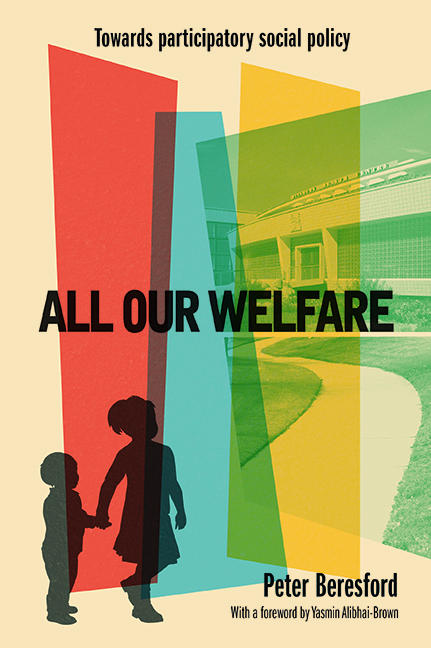Book contents
- Frontmatter
- Contents
- List of photographs and sources
- Foreword
- Dedication
- Acknowledgements
- Introduction Owning not othering our welfare
- Part One The legacy of the past
- Part Two The way to the future
- Afterword The future: a different way forward?
- Appendix One The family
- Appendix Two Research projects and related publications
- References
- Index
Foreword
Published online by Cambridge University Press: 01 September 2022
- Frontmatter
- Contents
- List of photographs and sources
- Foreword
- Dedication
- Acknowledgements
- Introduction Owning not othering our welfare
- Part One The legacy of the past
- Part Two The way to the future
- Afterword The future: a different way forward?
- Appendix One The family
- Appendix Two Research projects and related publications
- References
- Index
Summary
Ours is an age of rage, miserliness, crudity and startling ignorance. Seventy years ago, although Britons were exhausted and depleted by barbarous world wars, they were generous, idealistic, hungry for education and collectivist. That past and our present didn’t just happen. Politics, policies and national conversations make, change and manipulate public attitudes, sometimes to prepare the ground for major ideological or economic remodelling.
After the two world wars, the poor and working classes would, in time, have wearily returned to the old, unjust status quo. In 1945, before this fatalism set in, while the wounds and horrifying memories were still fresh, the Labour government tapped into and drew on the nation’s anguish and insecurities as it embarked on reconstruction and radical change. The people were primed, made ready for the welfare state. It, was, in effect, a quiet, very British, revolution. Without the pain of war, without astute politicking there would have been no gain.
Margaret Thatcher’s counter revolution aimed to incapacitate this welfare state. Men and women, she believed, had obligations only to their own families. She wanted this nation to be like the USA, ultra competitive, avaricious, selfishly Darwinist. It took longer than the Thatcherites imagined, to get the mind shift in Britain, partly because social democracy was well embedded and generations had got used to free healthcare, education, social care, state help from cradle to grave. But the seeds sowed by Thatcher in the late 1970s, diligently watered and fertilised over the years, finally bore fruit. A growing number of Britons now think the welfare state is a tax burden and a disincentive to those who are lazy, dependent scroungers. In the last election, in May 2015, we witnessed internecine feuds between those on benefits, between indigenous and migrant families living in social housing, between various groups of low paid workers, and growing ethnic mistrust. Millions voted for a party which promised to starve and weaken the welfare state, in my view, the one achievement that made Britain truly great.
Why and when did taking care of each other as humans become contentious? When the powerful decided that is how we should think and behave.
- Type
- Chapter
- Information
- All our WelfareTowards Participatory Social Policy, pp. vi - viiPublisher: Bristol University PressPrint publication year: 2016



